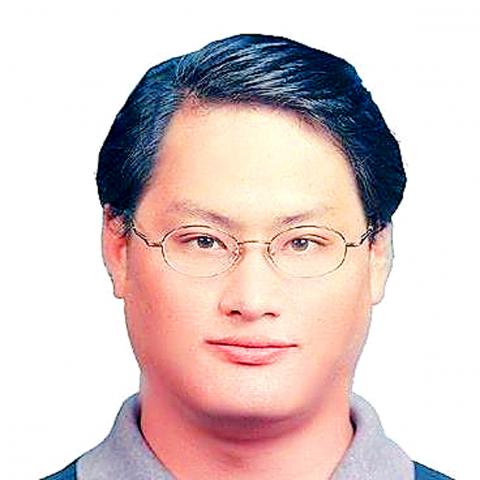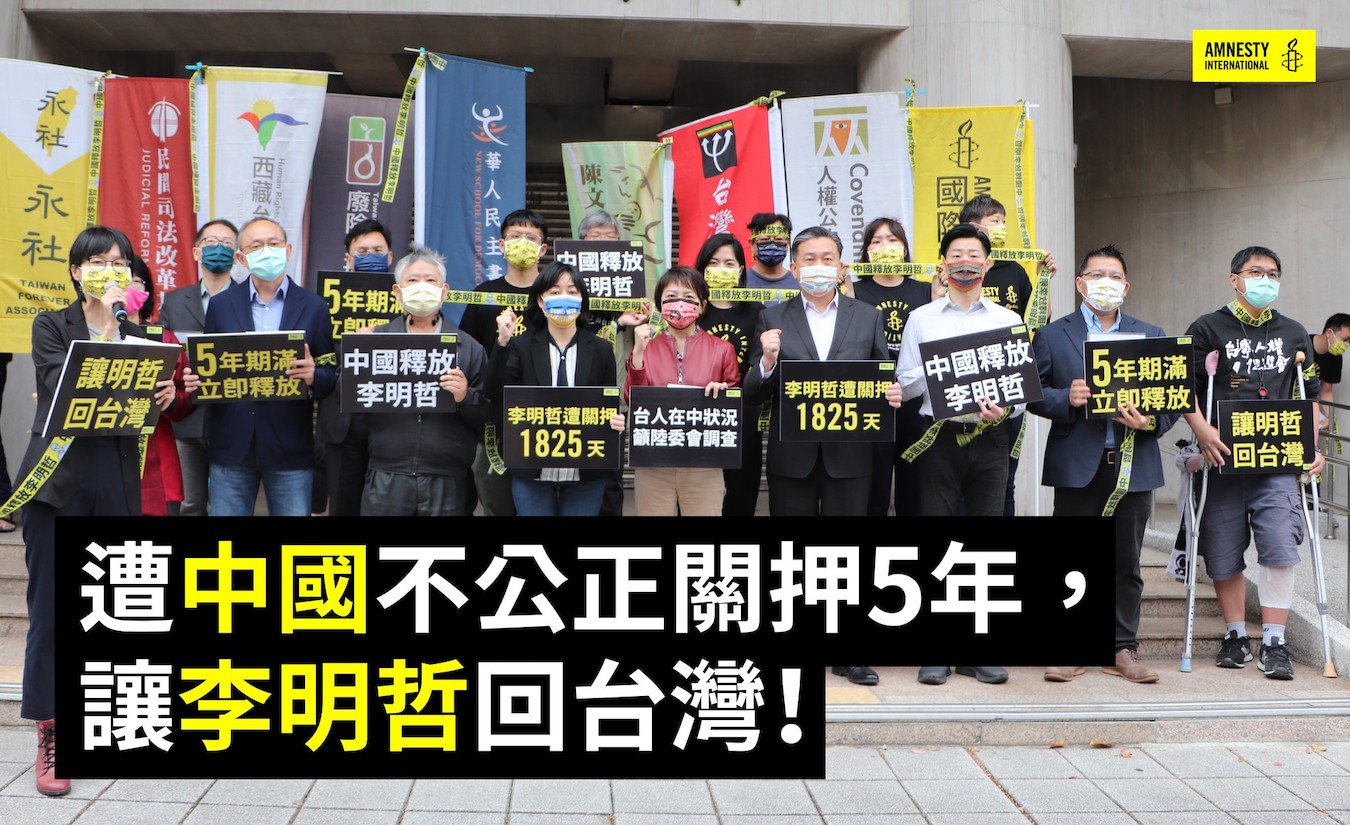by Brian Hioe
語言:
English
Photo Credit: 尋找李明哲/Facebook
CIVIL SOCIETY GROUPS demonstrated on Friday, March 18th to call for the release of imprisoned Taiwanese human rights activist Lee Ming-che in China. The demonstration took place the night prior to the fifth anniversary of Lee’s detention, which took place after he crossed into China from Macau on March 19th, 2017.
Participant groups included Amnesty International Taiwan, Covenants Watch, the Judicial Reform Foundation, the Doctor Chen Wen-Chen Memorial Foundation, and other groups. Politicians including pan-Green legislators Freddy Lim, Wang Ting-yu, and Fan Yun were also in attendance. Apart from holding a press conference, the group also tied yellow ribbons outside of the legislature’s Qunxian Building.
Lee was imprisoned on charges of seeking to subvert state power. This could be for a number of reasons. For one, it is known that Lee was in contact with Chinese friends, discussing Taiwan’s experiences of democratization with them on WeChat. Otherwise, it was originally thought that Lee could be the first Taiwanese NGO worker targeted under China’s foreign NGO law. Furthermore, Lee was also a former DPP party worker, and so he could have potentially been targeted as a way to intimidate the DPP.
 Lee Ming-Che. Photo credit: Lee Ming-Che’s family
Lee Ming-Che. Photo credit: Lee Ming-Che’s family
With regards to the demonstration that took place earlier this week, while Lee’s jail sentence was for five years, it is unclear as to when this runs until. Lee’s wife, Lee Ching-yu, never received a copy of the verdict for Lee’s trial, as a result of the exact date that he began serving his term is unclear.
Likewise, there have been concerns raised that China will continue to detain Lee. Lee’s sentence includes the charge that he will be deprived of his political rights for two years after release, which has led to fears that this could be used to justify continuing to imprison Lee.
Foreigners are usually deported from China after they serve their sentences, due to the fact that they do not have rights to political participation in China. Nevertheless, whether this pertains to Taiwanese, Hongkongers, or individuals from Macau is unclear.
Further questions have been raised due to the COVID-19 outbreak. Lee was denied contact from his wife during the COVID-19 outbreak, in line with a broader pattern of retaliation against Lee Ching-yu for campaigning for her husband’s release. This included Lee being denied bringing medication to her husband, something that is usually allowed under Chinese prison policies, and prevented from visiting him on the grounds that she was misrepresenting the conditions of his imprisonment. In the course of her husband’s term, Lee was approached by individuals with connections to KMT politicians such as Alex Tsai claiming to be intermediaries for China, stating that they would be able to negotiate Lee Ming-che’s quicker release if she ceased with her advocacy.
Yet while China usually informs family members of impending prison releases three months prior, the COVID-19 outbreak has led to delays in sending out such letters. This raises further questions about when Lee will be released.
More broadly, it is a question as to how many Taiwanese are currently detained in China on political charges. Other Taiwanese known to be detained on such charges include academics Shih Cheng-ping and Tsai Jin-shu, as well as businessman Morrison Lee Meng-chu. Notably, Shih and Tsai were known members of the pan-Blue camp, but this did not prevent their detention by China. Their family members kept quiet in the hopes that this would lead to a quicker release, a broader pattern true of some detentions. As such, this makes it even more difficult to know the exact number of Taiwanese detained by China.
 Image of the rally from Amnesty International Taiwan. Photo credit: Amnesty International Taiwan
Image of the rally from Amnesty International Taiwan. Photo credit: Amnesty International Taiwan
There were 149 Taiwanese citizens in China missing as of 2020, with the Mainland Affairs Council unable to confirm the location of 67 of them, though not all could be missing due to being jailed. Yet for its part, particularly around the time of the 2019 Hong Kong protests, the Chinese government claims to have arrested hundreds of Taiwanese spies involved in covert nefarious activity.
The Mainland Affairs Council has stated that it is monitoring the situation and has called on China to swiftly release Lee Ming-che. The Mainland Affairs Council has also urged caution from Taiwanese in China. At a time of high tensions, it is also possible that the Chinese government will step up the use of political detentions as a means of pressuring Taiwan. This is to be seen.

